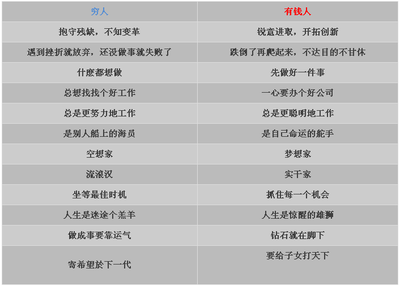It is truethat our behaviors are significantly influenced by the immediatesituation or surroundings, especially at extremely dangerous orexciting time. However, our attitudes are also determined by ourinternal characteristics, whose impact is more fundamental injudging the performance of us, and which lead the much moreimportant role than the circumstances in determining ourbehaviors.
Ourattitudes are sometimes determined by the immediate situation orsurroundings, but the exact attitude is controlled and influencedby the internal characteristics. For example, when people arefacing destructive cataclysm or simply caught in fire, they will nodoubt try to survive, which is the instinctive attitude towarddisasters and caused by the desirability of life. However, theexact attitudes among people are not all the same. A fire fighterwill probably fight not only for his own life but try to saveothers’ as well. On the contrary, a thief will possibly run as fastas he can. Therefore, the attitudes are not only determined by theimmediate situation or surroundings, but also followed by thecharacteristics of us.
What havethe people experienced, felt, tasted and tried has a lot to do withthe attitude of them, and helps to build up our internalcharacteristics. Sometimes, our internal characteristics directlydetermined our attitudes toward specific things. Take Tibet for example, the people of Tibet shares their own culture,tradition and spiritual religion. Thus, they want to build up anation belongs to themselves as a unity to improve their life andadmire their gods. By contrast, in most part of China, people havethe just opposite opinion that they claims the country’s unity, forTibet has always been the part of China. Having experienceddifferent culture and cultivated by apparently distinctivetradition, people of different group will have entirely differentattitudes toward exactly the same thing. So, the internalcharacteristics lead the more essential role in determination ofthe exact behavior of us.
What wehave thought and concluded from life is also an important part inthe determination of our attitudes, which is sure an aspect of ourinternal characteristics. For instance, a socialist spending a longtime thinking the human society will be more probably to have amore correct and justifiable attitude toward social phenomena thanordinary people, such as racial discrimination and globalization.In other words, socialist will more easily point out the rootfactors behind a social phenomenon. On the other hand, the ordinarywill simply concentrate on the superficial respects, especially infashion and entertainment fields. To conclude, people with longterm of consideration will have attitudes mainly followed by theirinternal characteristics when facing some questions.
In short,I don’t quite agree with what the author’s statement. From what hasbeen discussed above, we can easily draw the conclusion that,despite the fact that the immediate situation and surroundingsactually affect our attitudes, our internal characteristics aremore essential and play the leading role.
 爱华网
爱华网



